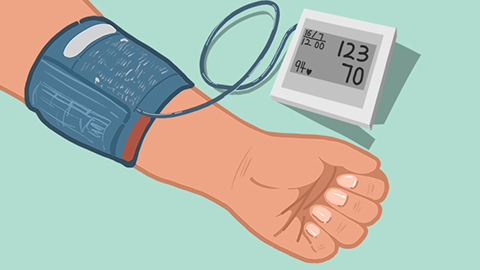How to treat hypertension
Generally, hypertension can be treated through dietary adjustments, weight control, increased physical activity, smoking cessation and alcohol moderation, as well as medication. It is recommended to visit a hospital to determine the specific cause and follow medical advice for treatment. Detailed analysis is as follows:

1. Dietary adjustment: Patients with hypertension should follow a low-salt, low-fat, high-fiber diet and reduce the intake of high-calorie, high-fat, and high-sugar foods. Eat more foods rich in calcium, potassium, and vitamin C, such as milk, soybeans, fish, vegetables, and fruits, as these foods can help lower blood pressure.
2. Weight control: Overweight and obesity are important risk factors for hypertension. Patients should control their weight through comprehensive lifestyle interventions, including self-monitoring of weight, balanced diet, increased physical activity and exercise, and behavioral interventions.
3. Increased physical activity: Appropriate exercise helps lower blood pressure. Hypertensive patients should primarily engage in aerobic exercise, such as walking, jogging, and practicing tai chi, with at least 150 minutes of moderate-intensity aerobic exercise per week.
4. Smoking cessation and alcohol moderation: Smoking and alcohol consumption both increase the risk of hypertension. Quitting smoking helps lower blood pressure and improve cardiovascular health, while limiting alcohol consumption can reduce its adverse effects on blood pressure.
5. Medication: Patients can also take medications such as nifedipine sustained-release tablets, amlodipine besylate tablets, and irbesartan hydrochlorothiazide tablets under a doctor's guidance to alleviate symptoms such as palpitations and dizziness.
During treatment, blood pressure should be monitored regularly, treatment plans adjusted according to medical advice, and healthy lifestyle habits maintained to promote recovery.






